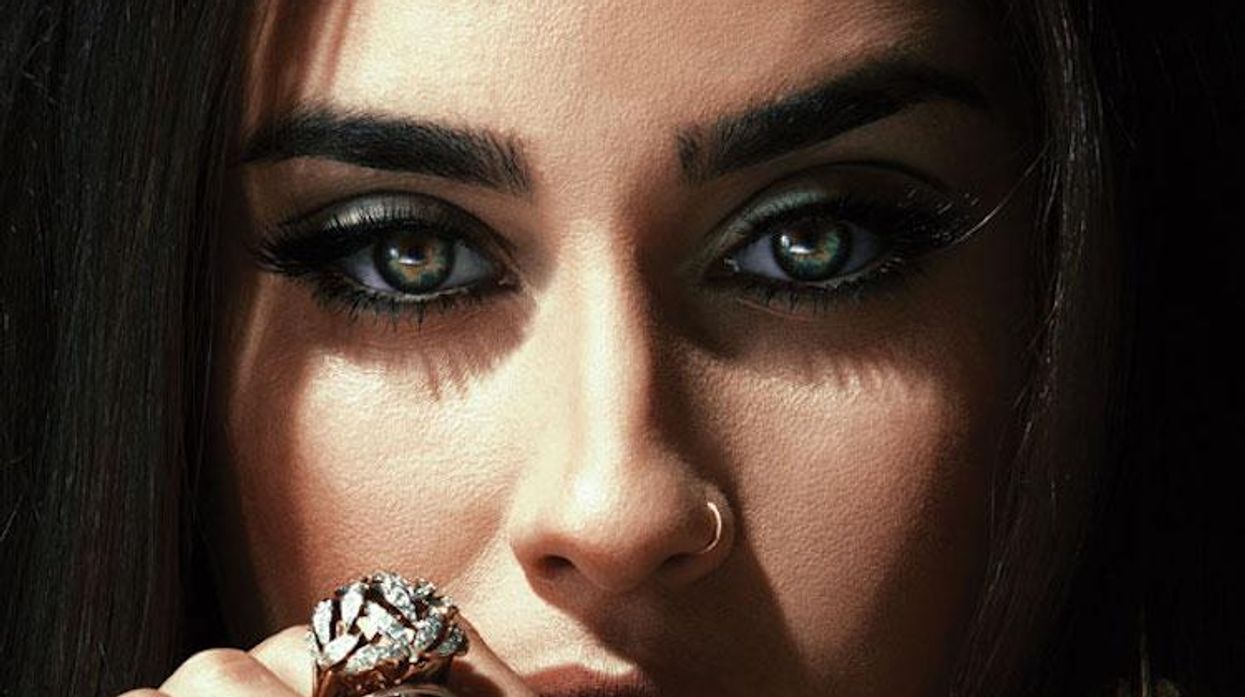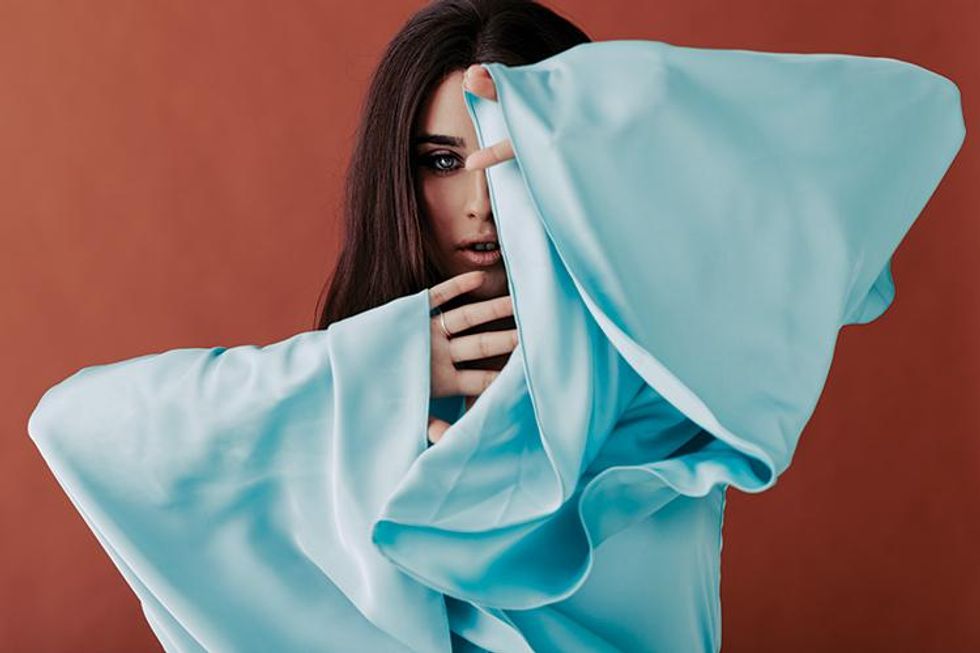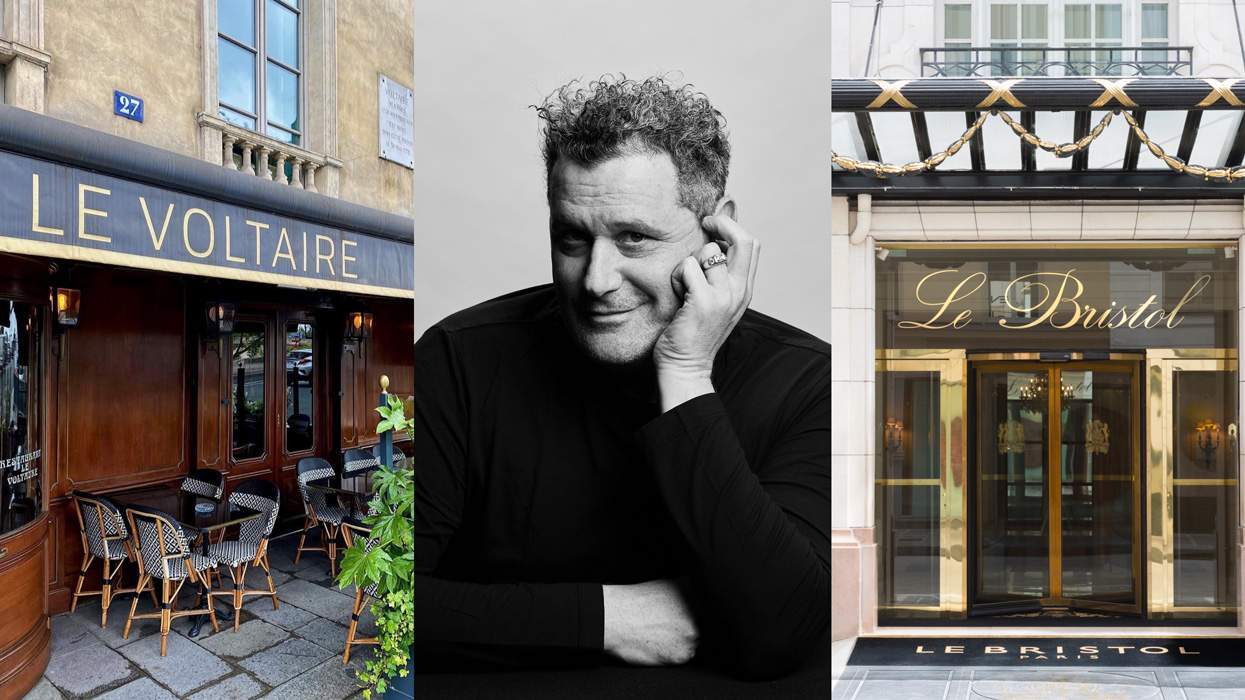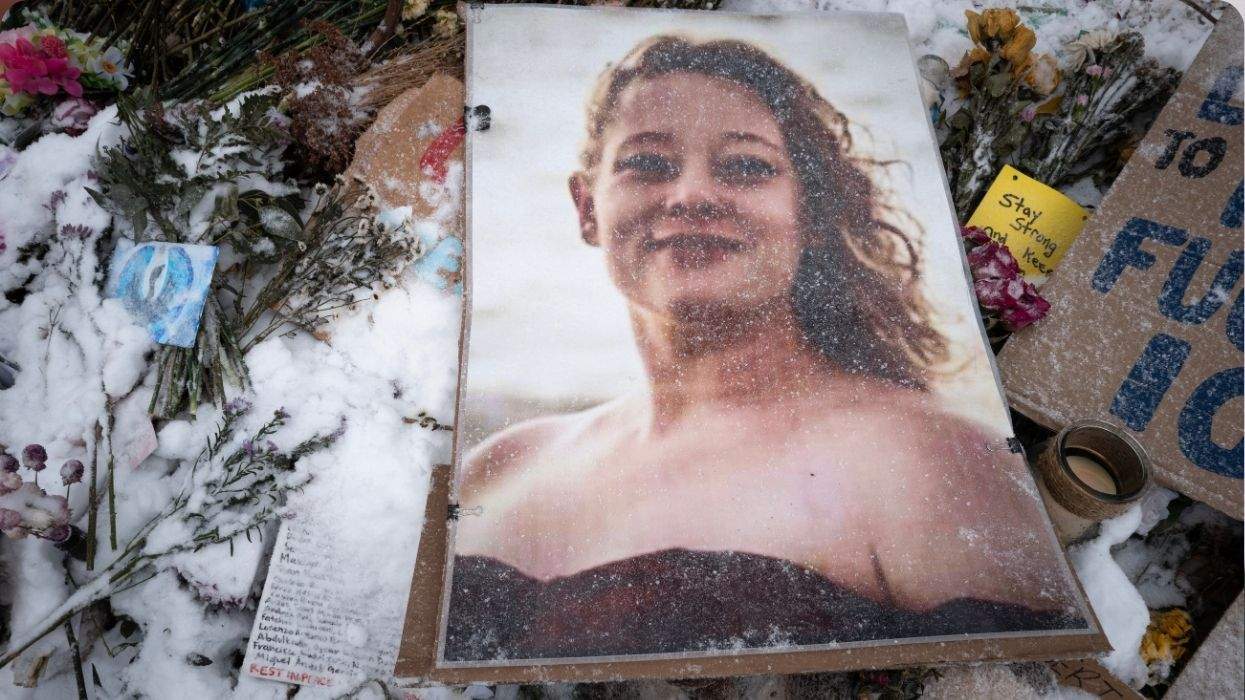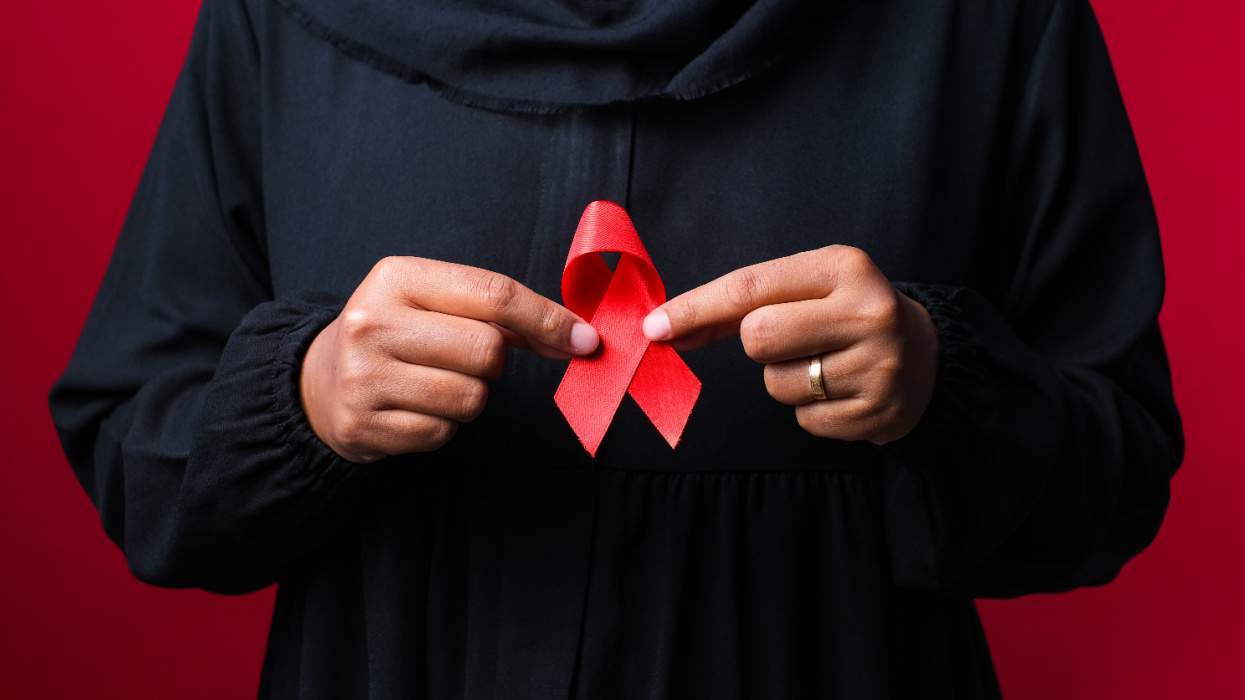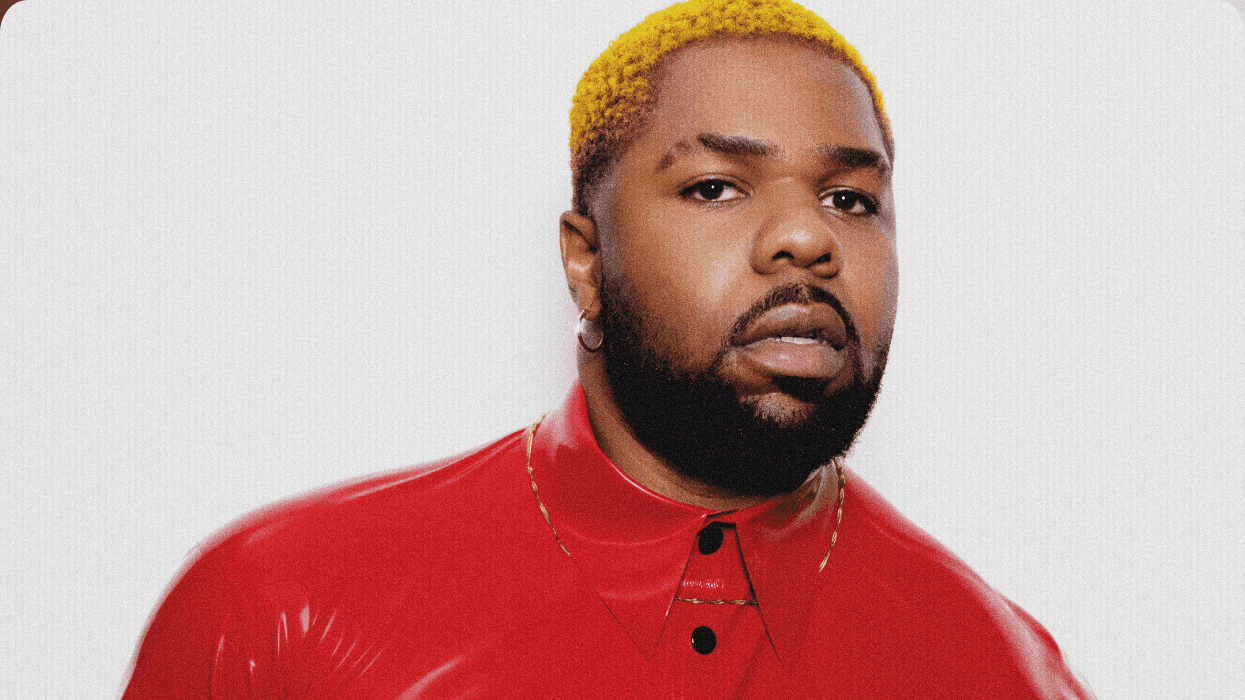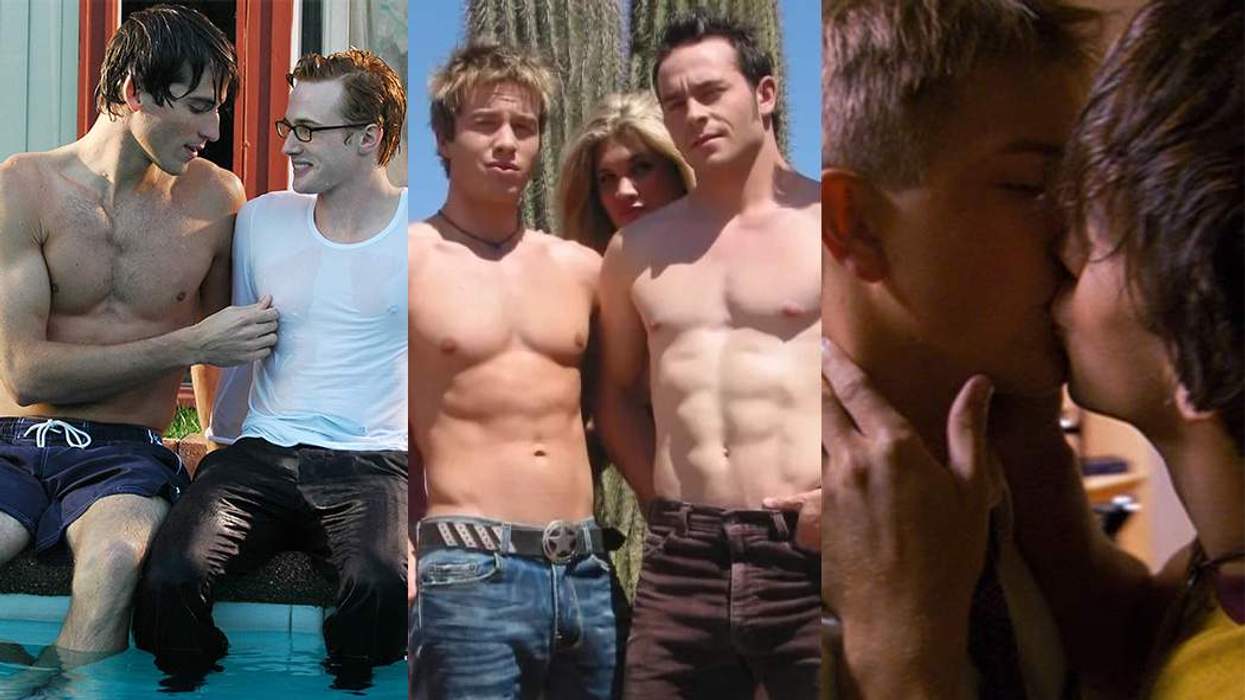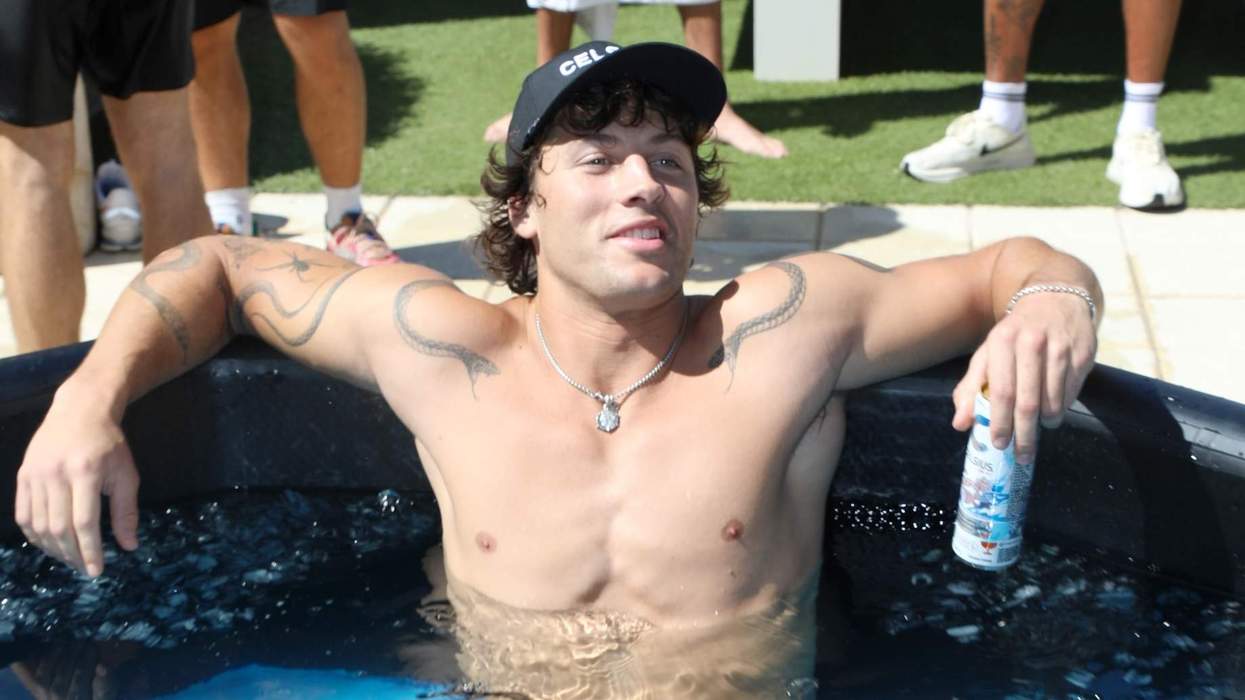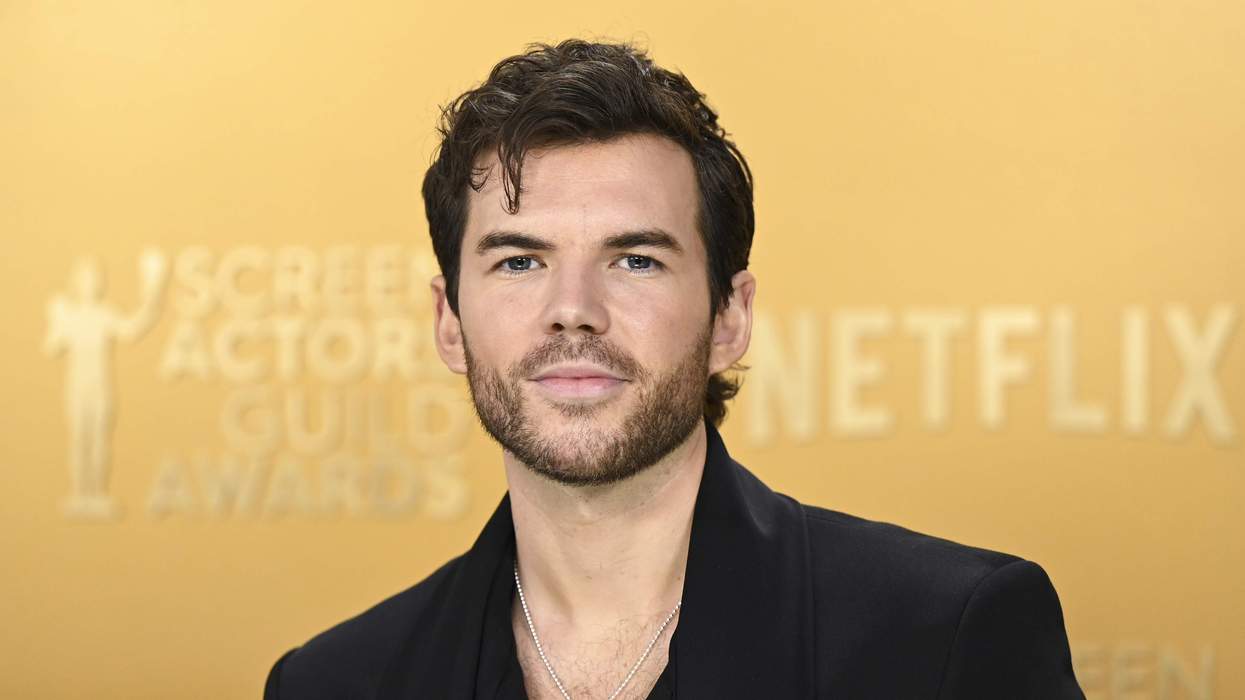Lauren Jauregui is trying to conceptualize her place in the cosmos. She talks about vibrations, the environment, and her sexuality with the fluidity of a young spiritual leader. The 21-year-old bisexual Cuban-American singer, a member of the multiplatinum-selling girl group Fifth Harmony, came out in a letter to Trump supporters last November, and she's still thinking about our current state of affairs and whether her songs can offer any sort of salvation.
"I want to make music that makes people feel things and think differently and want to be on [my] side of thinking," Jauregui says, sitting in a coffee shop in Los Angeles, her eyes dancing. "Like, come be cool with me."
She may sound a bit hippier-than-thou, but after a rough-and-tumble course through the music industry, Jauregui does have some hard-won wisdom to share. She was plucked from obscurity at the age of 16 for a chance to compete on The X Factor, where she and four fellow contestants were ultimately molded into Fifth Harmony, an arrangement that proved demoralizing at times. (The act is now under new management). As she rose to fame, she says fans analyzed her every move, speculating about her sexual orientation because of what she calls "bogus things," like her mannerisms. "That messed me up, growing up in the public eye when I was a teenager," Jauregui says. "That's when everyone is trying to find themselves."
But today she's charting her own queer path in the pop pantheon. In addition to releasing Fifth Harmony's self-titled third album in August (the group now has four members but kept its name), she recently collaborated with Halsey on "Strangers," a foreboding track about unrequited same-sex love. Jauregui enters the song slyly: "I must have crossed a line/ I must have lost my mind," she coos in the raspy voice that's become her trademark. Both singers are bi, though when Halsey first pitched the idea of recording "Strangers" together, the lyrics were about a woman pining for a man. "Then I got a text from her: 'Hey, babe, you can totally shut this down, but I was thinking we could switch the pronouns,'" Jauregui says. "I was like, 'Bitch, I was thinking the same thing!'"
While songwriters such as Tegan and Sara have injected queer narratives into pop music, hit singles like Katy Perry's "I Kissed a Girl" and Demi Lovato's "Cool for the Summer" have eschewed deeper themes of love and commitment. "Strangers" aimed to correct this. "To me the song is culturally valuable because people are feeling so invalidated and distant from themselves, like they should be ashamed of who they are," Jauregui says. "It's good to be an anarchist and just love yourself. That's the most rebellious thing you can do right now."
Before she came out in her fiery, post-election letter for Billboard, which took Trump voters to task (sample line: "You voted for a person who built an 18-month campaign off the back of your hatred"), she wasn't very concerned with labels. "Even the fact that I labeled myself makes me mad sometimes, because dude, I'm just a free spirit," she says. Growing up in Miami, she had a crush on a girl in high school but felt guilty even entertaining the feelings. "I was in a Latin household and part of a Catholic community," Jauregui says. "What was I going to do?"
"People still talk shit," she adds. "But it's like, why does it make you feel gross? You can watch a kid get bombed and not do anything about it, but you can't watch me kiss my girlfriend? Go fuck yourself."
This is more or less what Jauregui said to label execs who told her she shouldn't be so forthright about her personal life. "A lot of artists are held back by the notion that they'll lose their fan base or alienate themselves," she says. "Even friends and family would tell me to keep it to myself. But the more I thought about it, the more I was like, Why?"
Now, as part of a new wave of young celebrities like Willow Smith and Keke Palmer who are blending art and activism, Jauregui has started to use her platform for good--she's as likely to post screenshots explaining health care reform to her 3 million Twitter followers as she is to share fan drawings of her. For Jauregui, the concept of the squeaky-clean, apolitical girl group--with its canned responses and disingenuous calls for "girl power"--feels like a distant throwback. "There's this notion that artists are supposed to be dumb and frivolous," she says. "I completely disagree with that. Madonna, Bob Marley, John Lennon--they didn't talk about bullshit."
Photography by Austin Hargrave
Styling by Tara Nichols
Hair: Preston Wada
Makeup: Lyndsay Zavitz
Dress by Nora Al Shaikh, Vintage Ring


